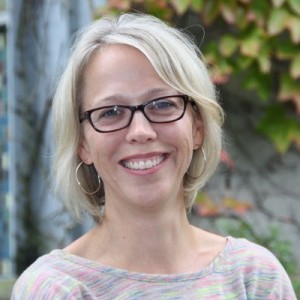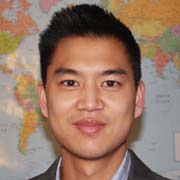Dr. Deborah Butler 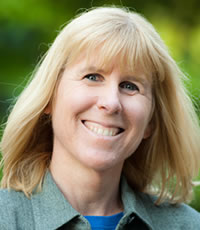
Professor, University of British Columbia
Email: deborah.butler@ubc.ca
Dr. Deborah Butler is Professor of Educational and Counselling Psychology, and Special Education in the Faculty of Education at the University of British Columbia (UBC). Through her teaching she contributes to the Faculty’s pre-service teacher preparation and to graduate programs in Human Development, Learning and Culture and Special Education.
Dr. Butler is strongly committed to collaborative research with educational partners. Over time, her field-based research has advanced theory and practice related to (a) understanding and supporting self-regulated learning in classrooms and schools; and (b) meeting the needs of diverse learners, particularly children identified as having learning disabilities. At the same time, she has applied a model of self- and co-regulated learning to study how professional development models might inform and empower educators in their on-going practice development. In particular, she has investigated whether and how longitudinal, inquiry-based initiatives might foster and sustain teachers’ learning and practice in ways that, in turn, foster students’ learning.
Over a 10 year period, Dr. Butler served UBC’s Faculty of Education as Director for Centre of Cross-Faculty Inquiry, Associate Dean for Graduate Programs and Research, Associate Dean for Strategic Development, and Senior Associate Dean. She is currently Co-President of the Canadian Association for Educational Psychology (2012-14). She serves on editorial boards for leading journals in her field, such as Teaching and Teacher Education and the Journal of Learning Disabilities.
Canadian Consortium for Self-Regulated Learning
Dr. Jennifer Shapka
Associate Professor, University of British Columbia
Email: jennifer.shapka@ubc.ca
Dr. Jennifer Shapka is an Associate Professor in the area of Human Development, Learning and Culture, within the Department of Educational and Counselling Psychology, and Special Education, at the University of British Columbia.
Dr. Shapka’s training is in the area of developmental psychology, and she is particularly interested in identifying how contextual factors are contributing to developmental wellbeing for adolescents. She has published work examining the impact of classroom context on achievement and career aspirations, the effect of parenting on pubertal timing, as well as the impact of being born to a teenage mother on the development of problem behaviours and school outcomes during adolescence. She is currently focusing on identifying how information technology impacts socio-emotional, cognitive, and physical outcomes adolescents and youth.
At the core of Dr. Shapka’s research is an interest in understanding development; in other words, how things change over time. Thus, she is very interested in different longitudinal methodologies and statistics for exploring developmental phenomena (i.e., growth curve modeling, structural equation modeling, etc.).
Dr. David WhiteBread 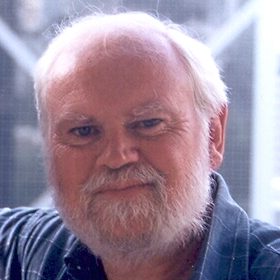
University of Cambridge
Dr. David Whitebread is the Acting Director (External Relations) for the PEDAL Research Centre with the Faculty of Education at the University of Cambridge.
David Whitebread is a developmental cognitive psychologist and early years specialist. Before joining the Faculty he taught in Primary schools, mainly in Leicestershire, for 12 years. His research interests are concerned with children’s psychological development and implications for early years and primary education. A particular focus has been the development of young children’s metacognition and self-regulation in relation to a nember of areas of development. These have included children’s problem solving and reasoning, mathematical strategies and road safety skills. Other interests include children learning through play, quality in early childhood education, evolutionary psychology and the the application of cognitive neuroscience to education. His current research focus is concerned with the early development of play and playfulness in young children, and the role of language and self-regulation and in supporting this development.
Dr. CHARLOTTE BRENNER 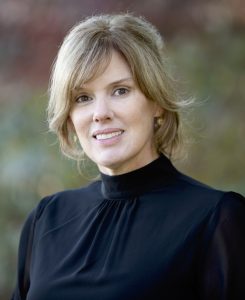
Email: charlotte.brenner@uleth.ca
Charlotte Brenner worked as a general and special educator for the Surrey School District for 25 years prior to her recent appointment as an Assistant Professor of Education at the University of Lethbridge. During her time with the Surrey School District Charlotte focused on creating inclusive teaching and learning environments for students and teachers. In her role as Assistant professor at the University of Lethbridge her focus remains on supporting teacher candidates to develop an understanding of what inclusion means and looks like in school and university settings.
Dr. Rebecca Collie 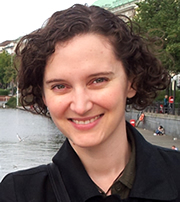
Email: rebecca.collie@unsw.edu.au
Rebecca Collie, PhD, is a research fellow in educational/developmental psychology in the School of Education at the University of New South Wales in Sydney, Australia. She undertook her master’s and doctoral studies at the University of British Columbia and worked as a research assistant for Dr. Perry on the research study, The Development of Early Career Teacher Motivation and Well-being. Prior to her graduate studies, Rebecca worked as an elementary teacher in Melbourne, Australia, and became interested in the working experiences of teachers and how these affect teaching and students’ learning. Her research focuses on examining well-being and motivation among teachers (both in-service and pre-service) and students with the aim of understanding how these experiences are related to other factors (e.g., job satisfaction for teachers, achievement for students) and how they can be promoted.
Dr. Gigi Hofer 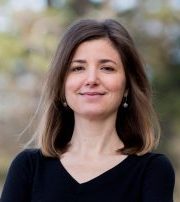
Email: gigihofer@gmail.com
Gigi Hofer owns and operates Owl Education in Victoria, BC. As a registered clinical counsellor, Gigi supports children and youth to understand and to manage social, emotion, and academic challenges to find success in school and beyond. Under the supervision of Dr. Nancy Perry, Gigi completed a PhD in Education at UBC in 2016. While at UBC, her research focussed on effective alternative education practices. Specifically, her dissertation investigated whether and how alternative education programs meet their students’ unique needs. It also provided an authentic view of these programs and the students who attend them.
Dr. Lynda Hutchinson 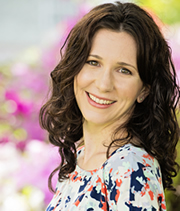
Assistant Professor in the Department of Psychology, King’s University College, Western University, London, OntarioEmail: lyndar.hutchinson@yahoo.ca
Lynda Hutchinson, PhD, is an Assistant Professor in the Department of Psychology at King’s University College at Western University in London, Ontario. She completed her master’s and doctoral programs at the University of British Columbia with Dr. Perry. Dr. Hutchinson is a collaborator on the project “ Children’s Development of Self-Regulated Learning”, which examines how young children’s self-regulation and achievement trajectories change as they move through the elementary school years. Dr. Hutchinson’s research continues to focus on the relationships between young children’s self-regulation, features of contexts, and success in the early years of school.
Email: simon.lisaingo@ubc.ca
Dr. Simon Lisaingo is a Lecturer with the School and Applied Child Psychology (SACP) Program at UBC, and a Provincial Outreach Clinician with the Children & Youth with Complex Care Needs Unit of the Ministry of Children and Family Development. He was previously a classroom teacher in Vancouver, Ottawa, and the Yukon. His doctoral research, under co-supervision by Drs. Laurie Ford and Nancy Perry, examined the development, implementation, and evaluation of a home-school consultative intervention for students with emerging emotional and behavioural problems.
Dr. Elina Määttä 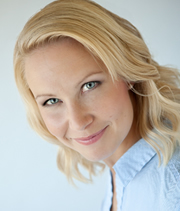
Email: elina.maatta@oulu.fi
Elina Määttä is a researcher at the Learning and Educational Technology Research Unit (LET), University of Oulu, Finland. Her research interest is in studying the development of self-regulated learning in primary grade children and developing research tools that enable them to express the ways in with they think about and enact strategies that lead to experience success. In particular, the focus of her PhD work is in efficacious interaction between young children’s self-efficacy perceptions and learning situation’s social factors. She is a Visiting Scholar at UBC, and completed her PhD work under Profs. Sanna Jarvela’s (University of Oulu) and Nancy Perry’s guidance.
Dr. SILVIA MAZABEL 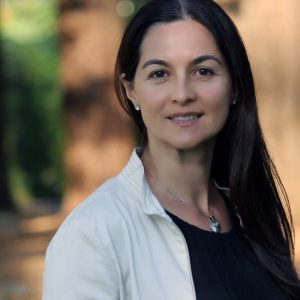
Postdoctoral Fellow and Faculty Developer in Department of Earth, Ocean and Atmospheric Sciences, University of British ColumbiaEmail: smazabel@mail.ubc.ca
Silvia is a postdoctoral fellow in the Department of Earth, Ocean and Atmospheric Sciences at UBC where she is involved in a faculty and curriculum development project titled Earth Science Experiential and Indigenous learning (EaSEIL). In this project, she leads a Community of Practice in which 22 earth science instructors meet regularly to learn, exchange knowledge and experience and explore possibilities to make their field-based course components more inclusive and aligned with calls to action related to the university’s Indigenous Strategic Plan. Silvia informs her faculty development practice with SRL principles and inquiry approaches to learning. In her doctoral research, Silvia collaborated with university instructors to foster students’ self-regulated learning in undergraduate science courses. Her study contributed to theory and research about how inquiry-focused professional learning and instructor-led pedagogical innovations can enhance the quality of teaching and learning in postsecondary settings.
Dr. NIKKI YEE 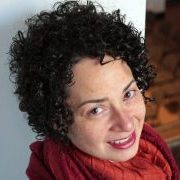
Assistant Professor in Teacher Education, University of the Fraser ValleyEmail: nikki.yee@alumni.ubc.ca
Nikki Yee is a PhD student in Special Education working under the supervision of Dr. Deborah Butler and Dr. Nancy Perry, and the Project Coordinator for Children’s Development of Self-Regulated Learning. She is also a Research Assistant for a study about Self-Regulated Learning in a virtual environment. Nikki holds a Master’s of Education and undergraduate degrees in Education and Native Studies from the University of Saskatchewan. Working as a Special Educator and classroom teacher for 13 years, Nikki became interested in how non-Indigenous teachers and educational systems could better meet the needs of Indigenous learners. This interest led to Nikki’s dissertation work which focuses on how Self-Regulated Learning can work synergistically with Decolonizing Pedagogy to support academic success and decolonization for Indigenous and non-Indigenous students. Nikki’s research extends current literature on Self-Regulated Learning by investigating how different pedagogies can come together to support diverse learners.

